As much as we love the holidays and joyful family gatherings, planning them can be incredibly stressful. For this Redditor, the Thanksgiving they were set to host this year started going off the rails well before the big night.
Hoping to protect their child with a medical condition, they asked relatives to follow just one simple rule: don’t come if you’re feeling sick. But when no one took the request seriously, things quickly spiraled into full-blown family drama. Read on for the full story.
For Thanksgiving this year, the host asked their relatives to skip dinner if they were feeling sick

Image credits: drazenphoto/Envato (not the actual photo)
But when no one took the request seriously, it sparked a full-blown family drama
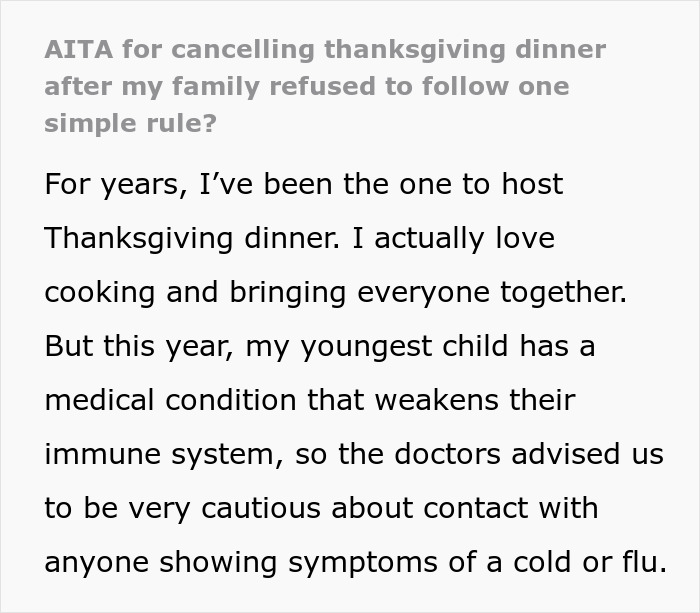
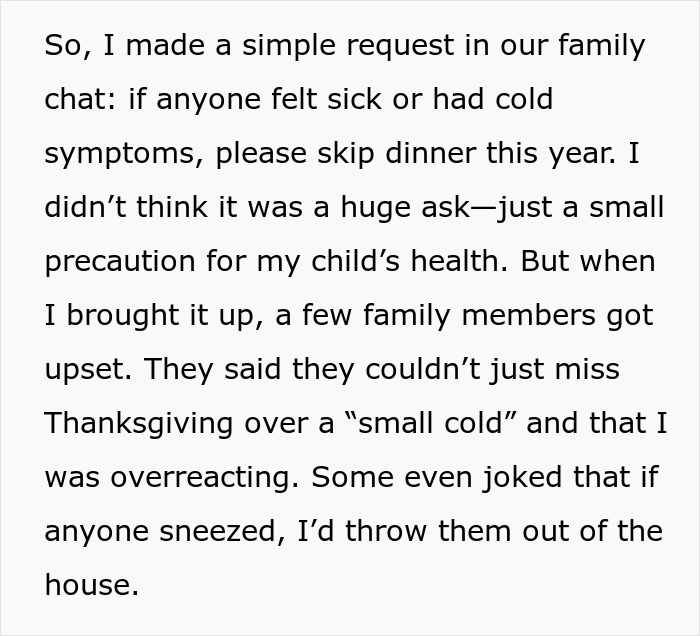

Image credits: graziegranata/Envato (not the actual photo)

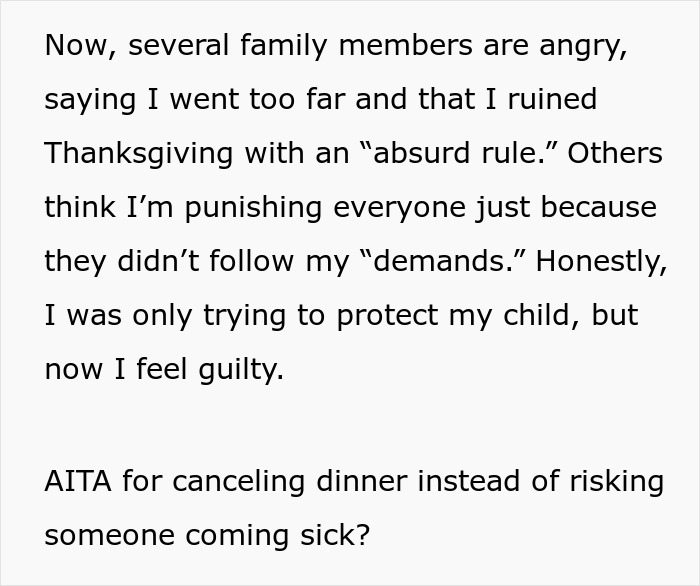
Image credits: Laura_antonela
What families fight about when they fight on Thanksgiving
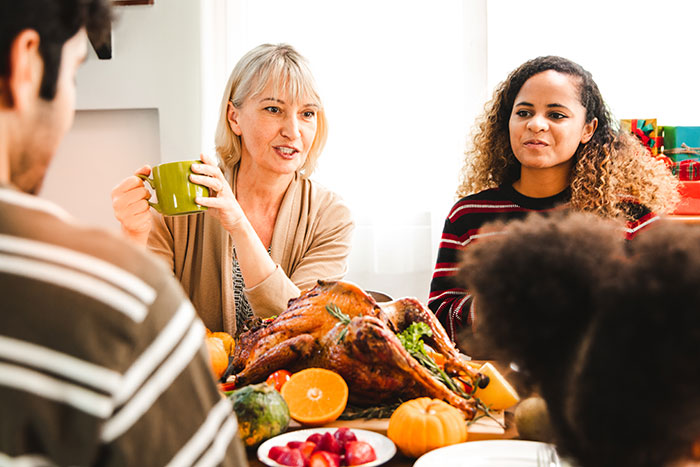
Image credits: anontae2522/Envato (not the actual photo)
On paper, Thanksgiving is supposed to be about giving thanks, but for many Americans, it’s often one of the year’s rowdiest gatherings. Alongside the cheerful conversations and hearty turkey feasts, there’s almost an expectation of being pulled into a family disagreement. And for OP, this holiday season seems to be no exception.
In fact, a USA TODAY Blueprint survey from last year found that out of 2,000 adults, only 12 percent reported never having family arguments on Thanksgiving. Over half (51 percent) said the top trigger for conflicts was “family issues.” Coming in close were politics (48 percent) and money (47 percent). Other tricky topics that tend to stir up tension included children and parenting approaches (37 percent) and religion (29 percent).
The survey also revealed that some family members are more likely to start a quarrel than others. Dads ranked first, with 38 percent of respondents saying they were the most likely to kick off a disagreement. Other likely candidates for starting a fuss were grandma (36 percent), grandpa (32 percent), aunt (31 percent), mom (27 percent), and uncle (23 percent).
How to keep the peace with relatives over the holidays

Image credits: Rawpixel/ Envato (not the actual photo)
If you’d rather skip the holiday squabbles, experts from Business Insider have a few tips. For one, you could give family members a heads-up in advance about which topics to avoid at the table. But if that’s not enough, and if your patience holds, it’s sometimes best to just let certain comments roll off your back.
“You have to understand the importance of the relationship. Is it actually worth winning the argument? Is it even worth hashing out?” says Keisha Saunders-Waldron, a licensed clinical mental health counselor supervisor. “And it could be worth hashing out when we’re talking about things where your value systems and core beliefs start to kick in—but if we know there is no resolution, and it’s not worth ending the relationship over, then we want to agree to disagree.”
If someone keeps pressing you, it’s important to set firm boundaries. “Those boundaries can sound like saying: ‘I’m not willing to continue to be badgered right now. So I have about two more minutes to talk to you before that I’m walking away, and I’m giving you the respect of letting you know that I’m walking away,’” adds Saunders-Waldron.
Humor can also work wonders to ease the situation, or, as radical as it might sound, you can apologize if you feel you crossed a line. And if things reach a point where nothing seems to help, remember you can always make a polite exit.
“I think grace is a big deal in this whole topic because you don’t want to alienate from your family,” says Risha Grant, international speaker, DEI consultant, and best-selling author. “I would still give everybody a hug on the way out—maybe not the person I’m pissed off at—but grandma, grandpa, I’d say ‘I love all of you so much. It was great up until this time, but I refuse to put myself or my loved ones in this situation. Maybe we’ll come back tomorrow and see you.’”
Many commenters supported the parent, saying the other relatives were being incredibly irresponsible

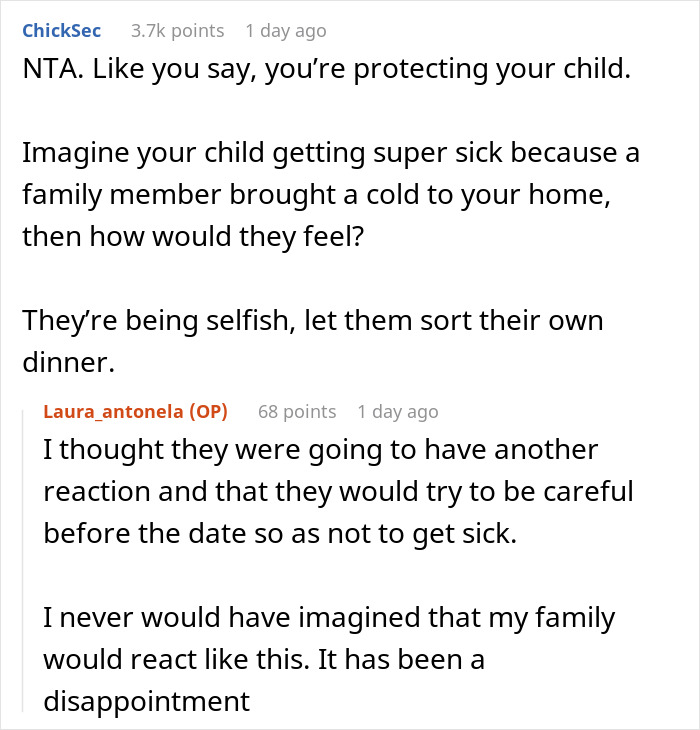



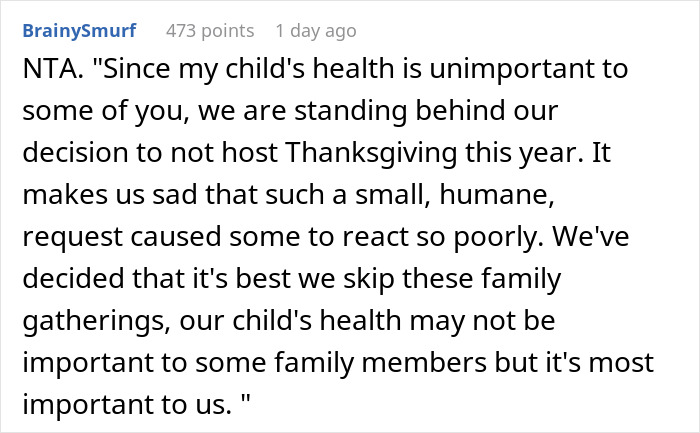









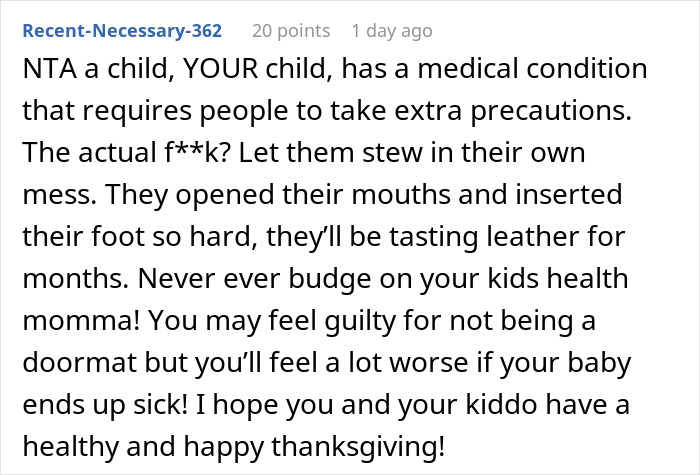
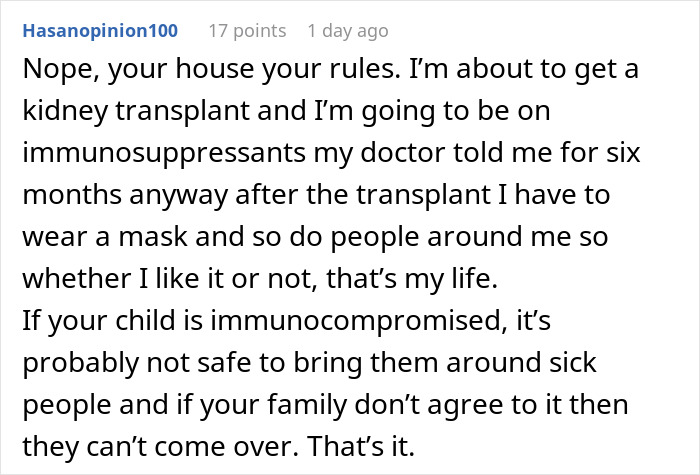


A few, though, argued that it wasn’t wise to plan the dinner in the first place











